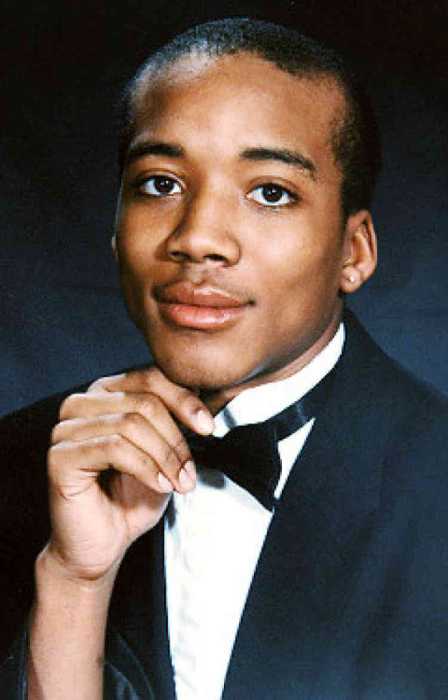Marc Fliedner outside his Atlantic Avenue law office in downtown Brooklyn. | GAY CITY NEWS
BY DUNCAN OSBORNE | Marc Fliedner wasted little time when he announced he is running to be the Kings County district attorney.
“There is agreement, consensus, that our criminal justice system is broken,” he said during the January 26 event, which was held near Brooklyn’s Grand Army Plaza. “To its foundation. That it needs to be reconsidered and reconstructed from the ground up.”
Any reform should be “First and best,” not “baby steps, not shaking hands on some little tweak you made to the system while you were talking to your cronies at a bar association dinner,” he told the roughly 20 friends and family members who joined him for the announcement.
“I’m talking reform,” he said. “Real and comprehensive reform that benefits all, including the most vulnerable and historically disenfranchised of our neighbors.”
Marc Fliedner, first hired by Liz Holtzman in 1987, takes on incumbent Eric Gonzalez
The 54-year-old Fliedner also aimed squarely at Eric Gonzalez, who has been the acting district attorney and presumptive frontrunner in this year’s race since Ken Thompson, who won the office in 2013, died this past October.
“So why in the world isn’t our prosecutor’s office using that platform, that great opportunity, to lead the nation in reform?” Fliedner said. “Why isn’t the Brooklyn district attorney’s office, the third largest prosecutor’s office in the nation, in fact doing it first and best?”
Thompson unseated Charles Hynes, who first won the office in 1989. While Hynes was known for some progressive reforms, efforts that Thompson expanded during his brief tenure, he also ignored misconduct by some prosecutors in his office, and he failed to prosecute crimes committed by members of the politically connected Orthodox Jewish community. Hynes, who is Irish-American, did not fully appreciate the demographic changes that had swept Brooklyn since 1989.
Fliedner recognizes those changes.
“I am not Asian but I have sisters of my heart who are,” he said during his announcement. “I am not of African descent, but I surely know why we’ve been marching together and what matters and why. I am not a woman, but I have been shaped by many, and know what it is does to the soul when you’re directed to stand over there and wait your turn.”
Fliedner first joined the Brooklyn prosecutor’s office right out of law school in 1987, when it was headed by Elizabeth Holtzman. He left for the Monmouth County prosecutor’s office in New Jersey in 1992 and then had a private practice there from 2001 to 2006.
In 2006, he returned to Brooklyn, where he lives in Bay Ridge, and saw steady promotions under Hynes, a prosecutor who was known for not tolerating assistants who lose cases. Fliedner eventually joined the homicide unit and made executive assistant district attorney and chief of the Major Narcotics Investigations Bureau in 2011. Most recently, Fliedner prosecuted two police officers, including Peter Liang, who was convicted in the 2014 fatal shooting of an unarmed Akai Gurley.
Fliedner had a public falling out with Thompson last year and left the office. Thompson was known for an abusive management style and then, like Hynes before him, appeared to be allowing politics to play too great a role in prosecutorial decisions. Fliedner was heading the Civil Rights Bureau when he left.
Through much of his career in law enforcement, Fliedner was closeted due in some measure to law enforcement’s hostility to LGBTQ people. Prior to his second stint in the Brooklyn prosecutor’s office, he was married to a woman and raising two kids with her. His male spouse of four years, a musician, attended the January 26 announcement.
“I think I stayed in the closet longer than I would have because of the messages that I got,” he told Gay City News during an interview in his Brooklyn law office. “I’m not running as the gay DA, but I’m certainly out and proud.”
The reforms he emphasized in his announcement include diverting more offenders to mental health services or drug treatment rather than sending them to jail and reducing the number of defendants who are incarcerated pre-trial. He also promised to more broadly engage Brooklyn residents.
“There are a lot of neighborhoods I am talking to where people feel like the DA’s office is absent, like they’re being ignored,” Fliedner told Gay City News.
He even poked Gonzalez and senior staff members in the office for their travel habits.
“Executives in the current DA’s office ride to work every day with their security details in big fancy, expensive vehicles, driving past the people they serve and then getting whisked into the big marble building,” Fliedner said during his announcement.
Brandishing a Metrocard, he added, “This is how I’ll be getting to work. If the streets and subways aren’t safe enough for you, and I’m the district attorney, shame on me. And if they’re safe enough for you, they’re safe enough for me. We’ll chat on the way.”
The race, in the final analysis, represents Fliedner’s return to a career that he loves.
“I love being a prosecutor,” he told Gay City News in a 2011 interview after he took over the narcotics unit. “I love being a law enforcement official.”



































